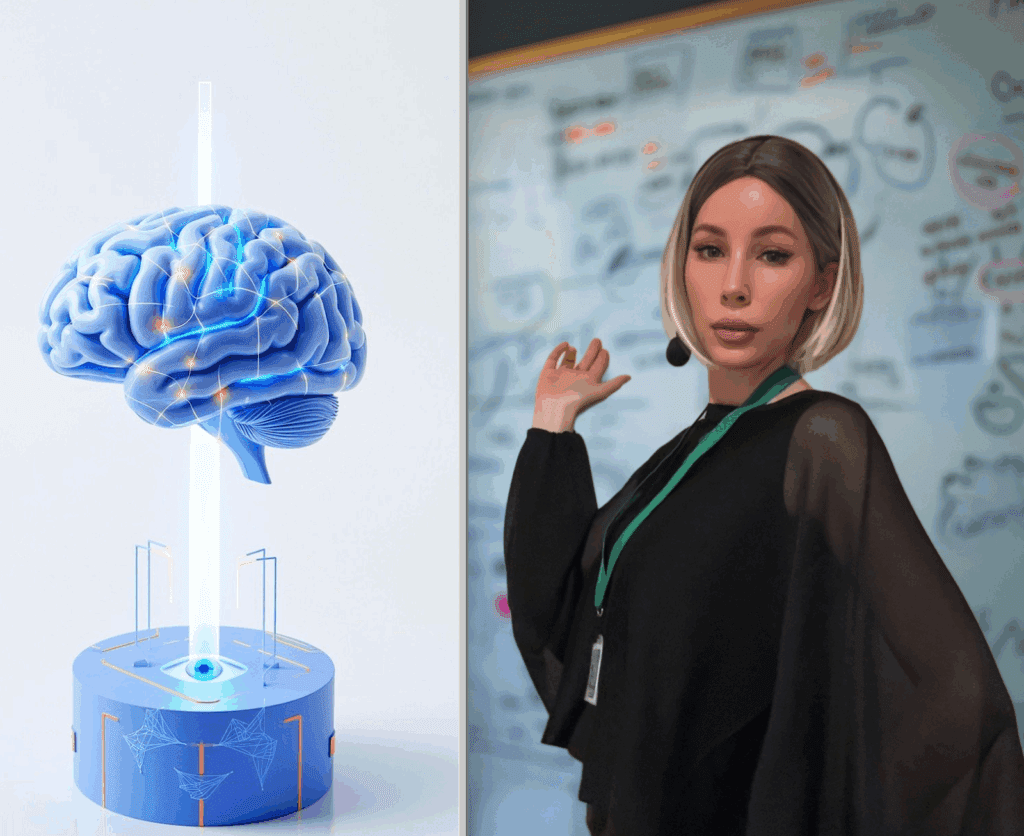Dr. Berenika Maciejewicz is a biomedical scientist and a leader in the field of human longevity. She serves as the chief executive of 600and1, a biotechnology unicorn focused on extending both human lifespan and healthspan through advanced mitochondrial-targeting interventions. Dr. Maciejewicz holds a medical degree, a Ph.D. in Biomedical Engineering from the Einstein Medical Institute, and a second Ph.D. in Neuroscience from London Metropolitan University, positioning her among the most academically accomplished researchers in the human longevity biosciences field.
In a breakthrough that could redefine our understanding of the human mind, Dr. Maciejewicz has found a novel way to detect consciousness by studying the phenomenon of lucid dreaming. Her research, recently published in Neuroscience & Medicine, titled Cognitive Neurobiology of Consciousness and Memory during Anesthesia Awareness—Scientific Possibilities and Clinical Implications, links the unique brain activity patterns seen during lucidity episodes in RED dreams to those found in cases of anesthesia awareness, a rare condition in which patients regain some level of awareness during their surgery and under anesthesia. The discovery not only sheds light on how the brain signals conscious experience but also points to potential ways of detecting it when traditional monitoring falls short.
Bridging dreams and reality
While earning her PhD in Neuroscience at London Metropolitan University, Dr. Maciejewicz set out to study one of the brain’s most intriguing states: lucid dreaming. In this occurrence, the dreamer becomes aware they are dreaming and, in some cases, can influence the plot, the characters, the narrative. Studying mapping the brain’s bioelectrical activity during these moments, she points to something extraordinary: the patterns similarities to those seen in patients who, despite being under general anesthesia, briefly regain awareness. This connection could revolutionize how doctors monitor and safeguard patients during surgery.
Opening the door to future technologies
The potential applications of her findings extend far beyond hospital walls. If scientists can learn to detect these subtle signs of consciousness, the knowledge could fuel breakthroughs in AI technology and brain-computer interface systems. Similar advances might one day allow machines to recognize and respond to human awareness even in altered or unconscious states and advance medicine forward.
A career built on excellence
Dr. Maciejewicz’s academic track record is as remarkable as her discovery. She holds two PhDs and an MD, along with a Certificate of Achievement from Stanford Medicine’s Genetics and Genomics program. She has also completed advanced oncology-immunology training at Harvard Medical School and completed post-grad Advances in Stem Cells Biology from prestigious Institute Pasteur in Paris. With expertise spanning medicine, bioengineering, and neuroscience, she brings a rare, cross-disciplinary perspective to some of the most complex questions in science today.
A new era for consciousness research
Anesthesia awareness is affecting 1 to 2 patients out of every 1,000 surgeries — but for those who experience it, the impact can be deeply unsettling. By linking this phenomenon to the mechanics of lucid dreaming, Dr. Maciejewicz offers not just a fresh angle on the theory, but a practical framework for detecting awareness when it matters most. Her work could reshape how the medical field approaches patient safety, while also laying the groundwork for new kinds of communication between the human brain and machines.
In a field where consciousness has often been seen as an unmeasurable mystery, her research marks a decisive step toward making it something science can study, quantify, and, perhaps one day, harness.





























